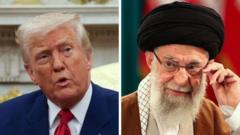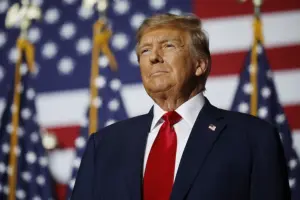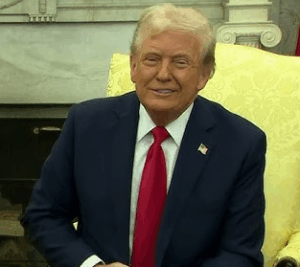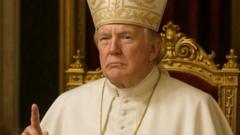**The postponed negotiations reflect ongoing hostilities and uncertainty surrounding Iran's nuclear ambitions and US sanctions.**
**Iran-US Nuclear Negotiations Delayed Amid Rising Tensions**

**Iran-US Nuclear Negotiations Delayed Amid Rising Tensions**
**Latest developments reveal postponement of pivotal nuclear talks between Iran and the US.**
The anticipated fourth round of discussions regarding Iran's nuclear program with the United States has been postponed indefinitely. Iran, in coordination with its negotiating partner Oman, cited "logistical and technical reasons" for delaying the Saturday meeting in Rome. Meanwhile, the US State Department clarified that a specific timeframe for these negotiations had not been firmly established.
The delay comes as President Donald Trump intensified pressure on Iran by imposing new sanctions targeting entities allegedly involved in the illicit trade of Iranian oil and petrochemicals. Trump's administration has maintained a tough stance since withdrawing from the nuclear agreement in 2018, expressing intentions to negotiate a more favorable deal while emphasizing potential military responses should the current talks falter.
Iran's Foreign Minister, Seyed Abbas Araghchi, reiterated the nation's commitment to a negotiated settlement, emphasizing that securing a balanced deal remains a priority. He stated on social media, "Our determination to secure a negotiated solution has not changed," highlighting the need for an end to sanctions and guaranteeing the peaceful nature of Iran's nuclear activities.
The United States, however, conveyed that negotiations had not yet been confirmed and anticipates that the next round would occur soon. Oman’s foreign minister remarked that a new date would be selected following a consensus among involved parties.
Despite the postponement, analysts do not foresee a complete collapse of talks, as both nations seek to avert military conflict. Nonetheless, skepticism surrounding the effectiveness of negotiations has been noted in Iranian media, particularly in light of the recent sanctions perceived as undermining good faith.
In a related development, Trump amplified his threats against countries and individuals purchasing Iranian oil, warning that such actions would result in immediate secondary sanctions restricting any involvement with the US. This strong message reiterates the US's position that Iran continues to contribute to regional instability through its nuclear advancements and support for militant groups.
Reports from Iran also mentioned alarming messages from Pentagon officials regarding the consequences for Iran's backing of the Houthis in Yemen, a group that opposes US interests and maintains ties to Iran.
The ongoing diplomatic tension underscores the complexities of reaching a comprehensive deal that balances Iran's rights to a peaceful nuclear program with the US's insistence on extensive limitations and regional security assurances. As negotiations remain in limbo, the fate of the nuclear program and associated sanctions continues to cast a shadow over US-Iran relations.
The delay comes as President Donald Trump intensified pressure on Iran by imposing new sanctions targeting entities allegedly involved in the illicit trade of Iranian oil and petrochemicals. Trump's administration has maintained a tough stance since withdrawing from the nuclear agreement in 2018, expressing intentions to negotiate a more favorable deal while emphasizing potential military responses should the current talks falter.
Iran's Foreign Minister, Seyed Abbas Araghchi, reiterated the nation's commitment to a negotiated settlement, emphasizing that securing a balanced deal remains a priority. He stated on social media, "Our determination to secure a negotiated solution has not changed," highlighting the need for an end to sanctions and guaranteeing the peaceful nature of Iran's nuclear activities.
The United States, however, conveyed that negotiations had not yet been confirmed and anticipates that the next round would occur soon. Oman’s foreign minister remarked that a new date would be selected following a consensus among involved parties.
Despite the postponement, analysts do not foresee a complete collapse of talks, as both nations seek to avert military conflict. Nonetheless, skepticism surrounding the effectiveness of negotiations has been noted in Iranian media, particularly in light of the recent sanctions perceived as undermining good faith.
In a related development, Trump amplified his threats against countries and individuals purchasing Iranian oil, warning that such actions would result in immediate secondary sanctions restricting any involvement with the US. This strong message reiterates the US's position that Iran continues to contribute to regional instability through its nuclear advancements and support for militant groups.
Reports from Iran also mentioned alarming messages from Pentagon officials regarding the consequences for Iran's backing of the Houthis in Yemen, a group that opposes US interests and maintains ties to Iran.
The ongoing diplomatic tension underscores the complexities of reaching a comprehensive deal that balances Iran's rights to a peaceful nuclear program with the US's insistence on extensive limitations and regional security assurances. As negotiations remain in limbo, the fate of the nuclear program and associated sanctions continues to cast a shadow over US-Iran relations.





















